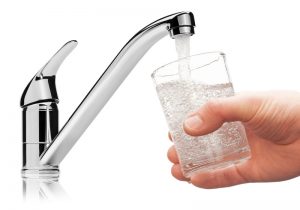 Survey a group of homeowners about the worst problems they’ve come across and had to repair during their homeownerships, and plumbing problems are likely to be some of the most popular answers. A problem with your plumbing system may result in drainage issues or even backup through the sink, but water piping issues can be just as bad.
Survey a group of homeowners about the worst problems they’ve come across and had to repair during their homeownerships, and plumbing problems are likely to be some of the most popular answers. A problem with your plumbing system may result in drainage issues or even backup through the sink, but water piping issues can be just as bad.
And one of the plumbing problems that may take you by surprise during your homeownership has to do with the quality of your water. We’re not talking about bacteria and other pollutants. That’s an entirely different problem. Today, we focus on hard water: what it is, how it wreaks havoc on a plumbing system, and how a water softener can help.
WHAT IS HARD WATER?
Hard water is not a water quality issue in the traditional sense. It shouldn’t cause health issues for your family members, and it won’t turn your water green or brown, which is why some homeowners think it’s not worth dealing with.
Hard water is when the water supply coming into your home has an excess of minerals such as calcium and magnesium. These minerals, while typically safe to ingest, can cause big trouble when they get into the pipes and all the other connected appliances.
HOW DOES HARD WATER DAMAGE PLUMBING?
You may have noticed these minerals or at least the left-behind deposits, called scaling, before. White and yellowish spots on drains and faucets are due to scaling. They’re tough to clean, but may not seem like a huge problem.
However, those same deposits built up on the drain in the bathroom sink can be inside the pipes as well. That can interfere with the way water flows through the pipes, as it restricts the volume of water flowing therein.
Eventually, all of that scaling can cause problems for pipes and other appliances:
- Scaling built up in pipes can collect to an amount that actually blocks water from flowing, forcing you to replace pipes or clean them out with chemicals.
- Deposits in a water heater or boiler can cause dangerous pressure changes.
- Dishwashers, clothes washers, and other appliances may become blocked up and require replacement sooner than expected.
HOW CAN A WATER SOFTENER HELP?
A water softener is your best protection against hard water. While there are filtration systemsthat can block some level of particulate and mineral deposits, only a water softener can really do the trick. That’s because a water softener is NOT a filter.
Rather, a water softener replaces the ions in hard water with salt, essentially. This is still safe to drink (although some people choose to couple a water softener with a second water treatment system).
WHAT DO YOU NEED TO KNOW IF YOU’RE CONSIDERING A WATER SOFTENER?
What you should know about a water softener is that you should always look for one designed to take care of hard water throughout the entire home (not just a single fixture). A water softener installed at the meter will help to protect all your pipes and fixtures.
Secondly, you should only allow a professional plumber to install, repair, or maintain your water softener. A water softener is not necessarily a one-size-fits-all fixture, and you want one that’s right for your home—and you need it to last for many years!
Finally, you should be prepared to refill salt from time to time. This is something you can handle on your own, though our plumbers are happy to show you how!
Get your water softener in Fort Lee, NJ from the professional plumbers at BZ Dependable Plumbing & Heating Inc.
The post HOW WATER SOFTENERS KEEP YOUR PLUMBING SAFE appeared first on B.Z. Dependable.





















